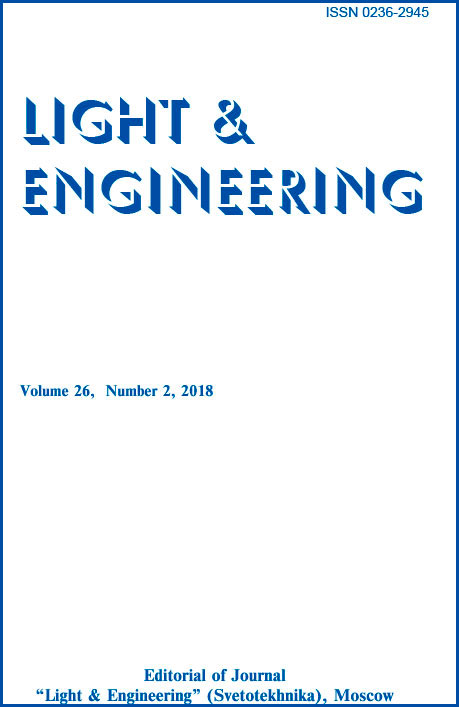Content

Abstract
Based on the FMRAS control algorithm, the optimization of the intelligent illumination in the classroom was studied, aiming at optimizing the classroom illumination and improving the energy utilization. The FMRAS control algorithm, based on technology, was used to design a fuzzy control system of intelligent illumination in college classroom. The analysis is based on the improved adaptive algorithm Ц FMRAS. After the PWM code is automatically generated, the system can automatically control the lighting of the lamps. Through the research, the result has been obtained: the method designed can meet the needs of the optimization of intelligent lighting in the classroom, and can further improve the efficiency and intelligence of classroom lighting in universities.
References
1. Zhang Y., Li B., Su X., et al. A Study of Schoolroom Lighting Fuzzy Control System. International Journal of Control and Automation, 2015. V8, #1, pp.189Ц196. 2. Morey M S., Virulkar V B., Dhomane G A. MRAS based Speed identification and online updating of rotor time constant for sensorless field oriented controlled induction motor. Emerging Trends in Electrical Electronics & Sustainable Energy Systems (ICETEESES), International Conference on. IEEE, 2016. pp.179Ц185. 3. Kirkby, J. L., Deng, S. "Static hedging and pricing of exotic options with payoff frames." Available at SSRN2501812, 2017. 4. Zumbrunn S., McKim C., Buhs E., et al. Support, belonging, motivation, and engagement in the college classroom: A mixed method study. Instructional Science, 2014. V42, #5, pp.661Ц684. 5. Biddix J P., Chung C J., Park H W. The hybrid shift: Evidencing a student-driven restructuring of the college classroom. Computers & Education, 2015. V80, pp.162Ц175. 6. Berry M J., Westfall A. Dial D for distraction: The making and breaking of cell phone policies in the college classroom. College Teaching, 2015. V63, #2, pp.62Ц71. 7. Georgieva D., Schledermann K M., Nielsen S M L., et al. Designing User Centred Intelligent Classroom Lighting. Interactivity, Game Creation, Design, Learning, and Innovation. Springer, Cham, 2017. pp.314Ц323. 8. Wei W., Tao Y., Baosen T., et al. Design of intelligent multifunctional LED lighting system. Microcomputer & Its Applications, 2016. V15, p. 31.
Keywords
- fuzzy model reference adaptive system (FMRAS) control algorithm
- college classrooms
- intelligent lighting
Recommended articles
Evaluation Model of Lighting Environment for Subway Station Space Based on Back Propagation Neural Network. L&E 26 (3) 2018

